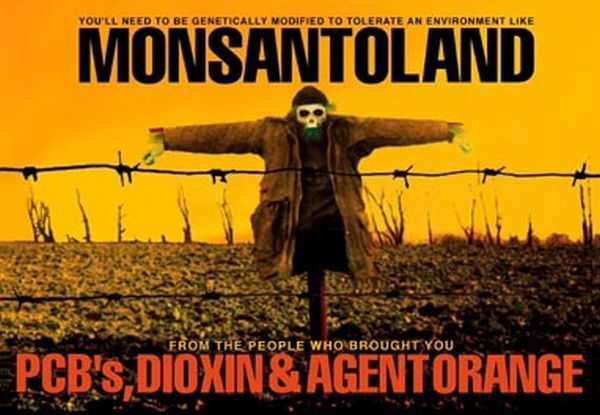The American Academy of Environmental Medicine (AAEM) has just issued a call for an immediate moratorium on Genetically Manipulated (GMO) Foods.

In a just-released position paper on GMO foods, the AAEM states that ‘GM foods pose a serious health risk’ and calls for a moratorium on GMO foods. Citing several animal studies, the AAEM concludes ‘there is more than a casual association between GMO foods and adverse health effects’ and that ‘GM foods pose a serious health risk in the areas of toxicology, allergy and immune function, reproductive health, and metabolic, physiologic and genetic health.’ The report is a devastating blow to the multibillion dollar international agribusiness industry, most especially to Monsanto Corporation, the world’s leading purveyor of GMO seeds and related herbicides.
In a press release dated May 19, the American Academy of Environmental Medicine, which describes itself as ‘an international association of physicians and other professionals dedicated to addressing the clinical aspects of environmental health,’ called immediately for the following emergency measures to be taken regarding human consumption of GMO foods:
* A moratorium on GMO food; implementation of immediate long term safety testing and labelling of GMO food.
* Physicians to educate their patients, the medical community and the public to avoid GMO foods.
* Physicians to consider the role of GMO foods in their patients’ disease processes.
* More independent long term scientific studies to begin gathering data to investigate the role of GMO foods on human health.
The AAEM chairperson, Dr Amy Dean notes that ‘Multiple animal studies have shown that GM foods cause damage to various organ systems in the body. With this mounting evidence, it is imperative to have a moratorium on GM foods for the safety of our patients’ and the public’s health.’ The President of the AAEM, Dr Jennifer Armstrong stressed that ‘Physicians are probably seeing the effects in their patients, but need to know how to ask the right questions. The most common foods in North America which are consumed that are GMO are corn, soy, canola, and cottonseed oil.’ The AAEM’s position paper on Genetically Modified foods can be found at http:aaemonline.org.
Related information:
– Exposed: the great GM crops myth
– The World According to Monsanto – A documentary that Americans won’t ever see
– At stake is no less than control of the world’s food supply.
The paper further states that Genetically Modified Organisms (GMO) technology ‘abrogates natural reproductive processes, selection occurs at the single cell level, the procedure is highly mutagenic and routinely breeches genera barriers, and the technique has only been used commercially for 10 years.’
The AAEM paper further states, ’several animal studies indicate serious health risks associated with GM food consumption including infertility, immune dysregulation, accelerated aging, dysregulation of genes associated with cholesterol synthesis, insulin regulation, cell signalling, and protein formation, and changes in the liver, kidney, spleen and gastrointestinal system.’
Read moreUS Association of Physicians calls for Moratorium on GMO Foods










